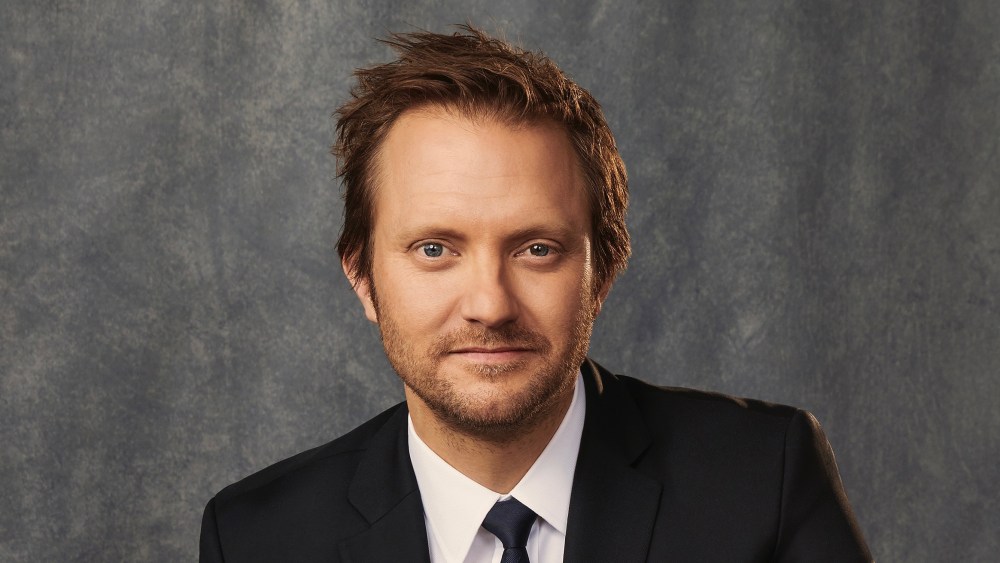Entertainment
Canada series on American TV is not a discount bin

Now that The CW has changed its financial model under new owners Nexstar, entertainment president Brad Schwartz is relying more on international co-productions from countries like Canada. Speaking at the Banff World Media Festival on Tuesday, Schwartz — a native of Canada — acknowledged that Canadian acquisitions of U.S. networks have often been seen in a lesser light in the past. However, he hopes that perception will change.
“I would hate for anyone to ever think that Canada is the discount territory because that’s our Canadian personalities first and foremost,” Schwartz said. “Canada has the advantage of having some great broadcasters that need to invest a lot of money in Canadian content. And then there are the tax credits and our American dollars go further here. I think historically maybe people didn’t respect Canadian content as much. And maybe there’s a little bit of that in the background. Personally, as a personal ambition, I have tried to change that.”
Schwartz pointed to shows like “Schitt’s Creek” (which he developed and featured on Pop TV), “Letterkenny” and “Orphan Black” as some of the recent Emmy-winning and award-winning shows to originate from Canada.
“If I’ve been fortunate or ambitious to have the relationships and be the one to really dive in and champion that content to the world, then that makes me proud,” Schwartz said. “But the CW, we don’t have the budget that CBS and NBC or Netflix have. There is only so much we can spend. We’ve been able to make a lot of great deals with Canada, and maybe we’re just sneaking in before the rest.”
Canadian co-productions on The CW include ‘Wild Cards’, ‘Sight Unseen’, ‘Sullivan’s Crossing’, ‘Son of a Critch’, ‘Children Ruin Everything’ and ‘Run the Burbs’.
“We like to laugh at the scripted team that sometimes it seems like we now have more Canadian relationships than American ones because we’ve become so entrenched in visibility,” said Saleena Lockett, executive director of scripted programming at The CW. But it was great to get to know another market and gain even greater access to more creative products. The way you guys do things here, even on a creative level, actually gives us access to a lot more projects than we can sometimes do in America because of how strict the system is and what we can get our hands on.”
The tricky part, Schwartz said, is putting the shows in a somewhat neutral setting — so that Canadian audiences may recognize locations like Vancouver, but American audiences don’t feel like they’re missing the local references. (He compares the vague specificity of “Schitt’s Creek” in Canada to the “everytown” feel of Springfield in “The Simpsons.”) “We want to make sure there’s a broad access point for every moment, where everyone can feel this is a place where they can understand and experience it,” he said.
Schwartz added: “I think Canadian content can stand next to anything in the world today. They are incredible shows that make us feel lucky and lucky that we are the ones who got them, but I certainly wouldn’t call them a discount. We’re just saying that we’re a little ahead of the crowd.”
Noting the difficulty of competing for shows given The CW’s limited budget, Schwartz pointed to a recently launched BBC series, “The Good Girls’ Guide to Murder.” Schwartz said, “That’s what we’re bidding on. We stayed very diligent with the amount we thought we could afford. And Netflix blew us away. Wasn’t even close.”
Schwartz said The CW still hopes to put between 10 and 12 scripted series on air, but to do that, all those shows will need production partners. And outside of Canada, that currently includes deals in Australia and the UK
“We still have a big ambition to make a lot of scripts,” he said. “But it’s hard for us to do shows alone. So the co-production route is really the only way for us to do scripted programming.”
He mentioned the new show “Good Cop Bad Cop” as another example; the Leighton Meester drama (from Future Shack Entertainment and Jungle Entertainment) includes partners Roku (which has the second window), Australian Stan and British ITV, which has distribution rights outside the US and Australia.
“And then we decided, as we said, to film in Australia, so now we’re getting government funding. We get tax benefits, you get the benefit of foreign exchange,” he said. “You have to love it first, you’re not just going to do it because of the deal. And then we have to take that extra step by really thinking creatively about how we are going to put together the finances. All of our scripted shows will be. Canada will always be the first place we always go, for all the reasons we’ve discussed.”
Meanwhile, sports is a genre the CW is spending more money on, which started with the network’s deal for LIV golf, which he called “a very opportunistic opportunity… our local stations are really thirsty for sports. We never thought we could afford it. And then a regional sports network went bankrupt and suddenly we got a great deal on ACC football and basketball. Then we started to see the results of all that. Then we wrote a really big check and got into the NASCAR business.”
Since then, The CW has also inked deals with the WWE and picked up the NFL Films series “Inside the NFL,” which he hinted will add a new host in addition to Ryan Clark.
“Sports has been the biggest driver of new viewers for us,” he said. “I think you’ll see more sports on the CW, not less.”
Schwartz said upcoming plans include a pre- and post-show for NASCAR. The CW also has the remaining teams from the Pac 12. “There will be days where we have three football games in a row,” he said. “So we’re thinking maybe we’ll build a little studio so we can go from game to game and kind of have a home base. All of that is in the early stages of discussion.”
When asked about The CW’s acquisition of Max’s “F-Boy Island,” which didn’t work out for the network, Schwartz admitted he was “devastated” by it. “It didn’t do well on linear, our AVOD didn’t do well and with the distribution revenue coming in from abroad, we’ll be fine,” he said. “But it wasn’t the breakthrough I was hoping for.”













